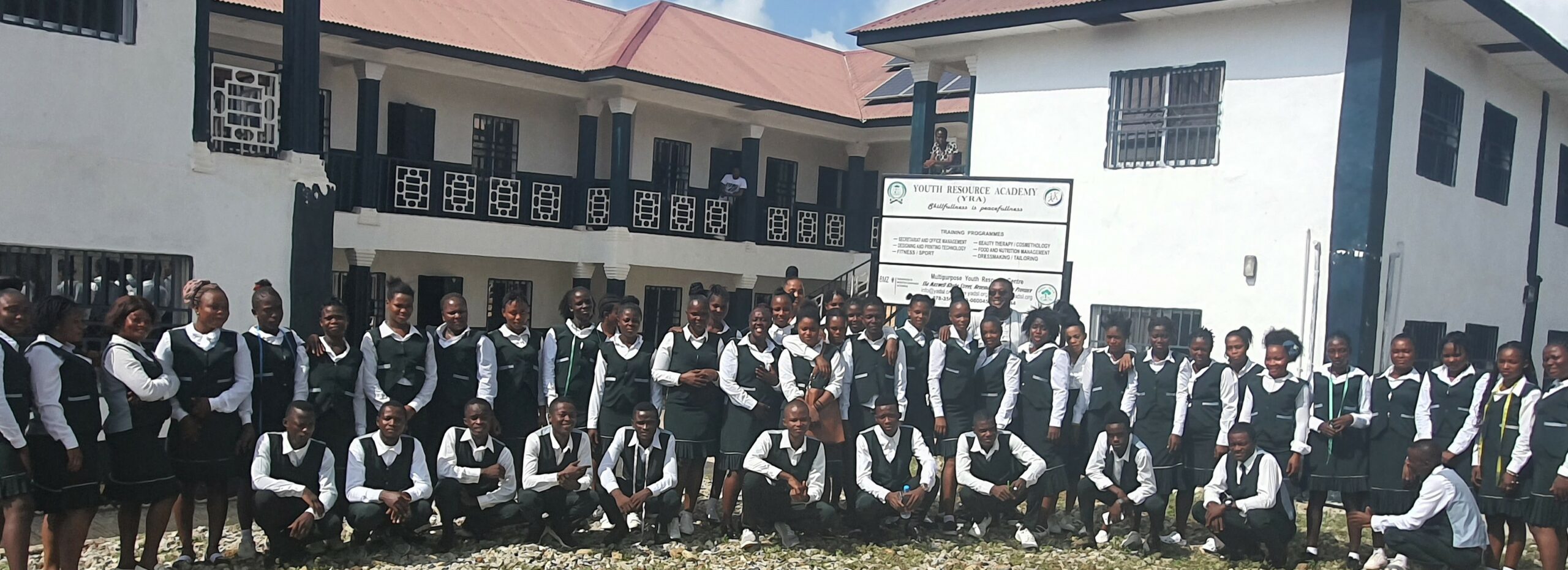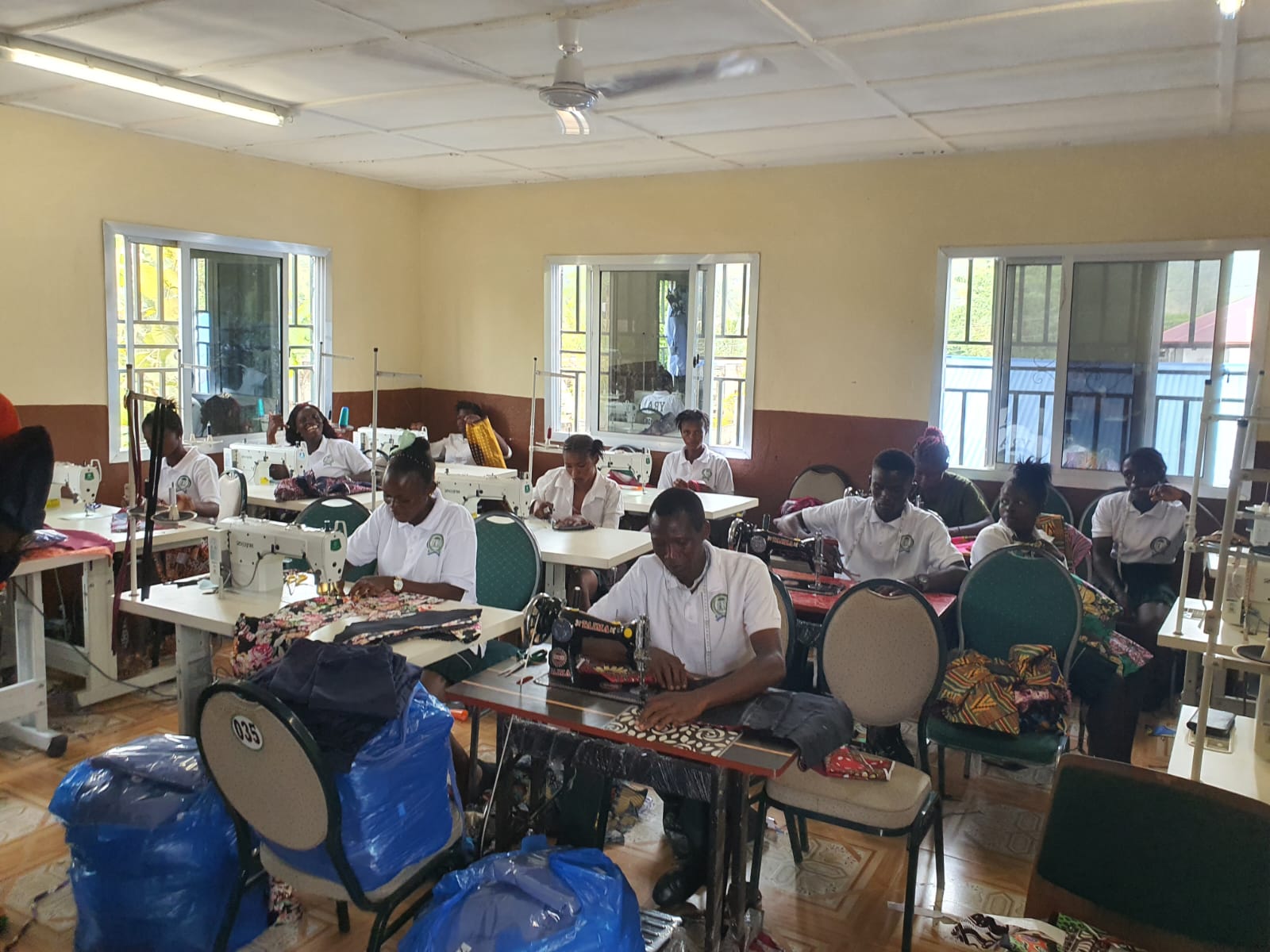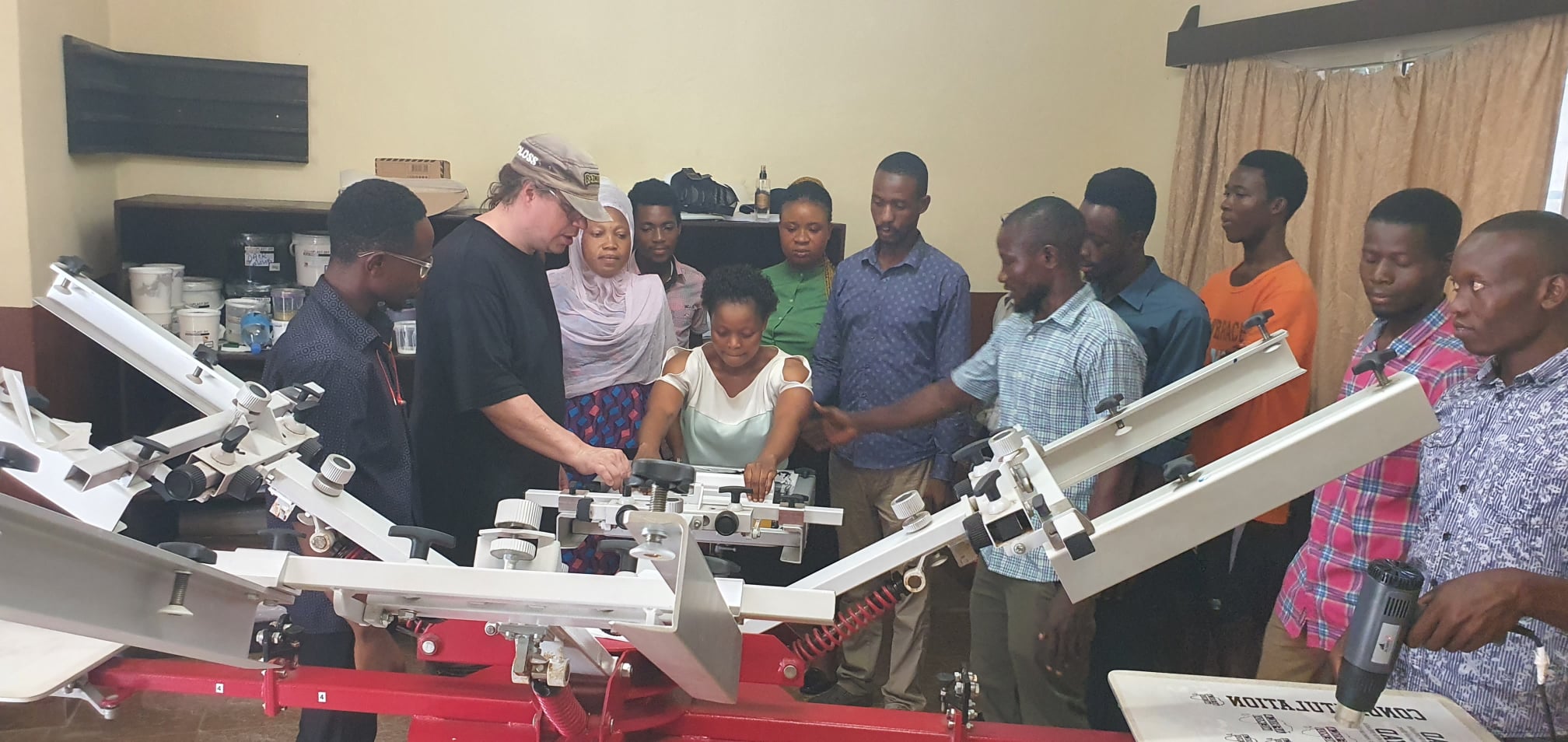Our state-of-the-art training institute, Youth Resource Academy (YRA), currently caters to 210 underprivileged youth enrolled in various faculties, including dressmaking, hospitality management, food and nutrition, cosmetology, screen-designing /printing, ICT and sport.
YAD views youth employment and young people’s social participation in decision-making at the grassroots level as essential elements in poverty reduction, sustenance of peace, democracy and development. The gap between the rich and poor is alarmingly wide in the east and southern regions, where YAD is focused. The overall Sierra Leone youth unemployment rate is between 70 and 75%, according to official statistics from UNDP, whereas 45% are either illiterate or school dropouts who cannot fit in an office and lack skill know-how. The remaining 30% are either underemployed or unemployed due to a lack of additional prerequisites in their CVs, such as job experience, digital knowledge, or a prominent figure that could recommend them.
 This group has difficulty investing for the future through education and savings and remains chronically trapped in poverty due to persistent norms of social exclusion and lack of employment. They lack access to productive resources, fair targeting of public projects and services and opportunities to integrate into market systems. This situation is grossly undermining the youth’s participation in decision-making in post-war Sierra Leone. While the girls are vulnerable to domestic violence and negative cultural practices, including forced marriage, sexual abuse, forced religion and female genital mutilation (FGM), the boys are vulnerable to dangerous income generation practices, including harmful drug trafficking, commercial bike riding (without protective gears), and politicians often use them as instruments of violence during political games.
This group has difficulty investing for the future through education and savings and remains chronically trapped in poverty due to persistent norms of social exclusion and lack of employment. They lack access to productive resources, fair targeting of public projects and services and opportunities to integrate into market systems. This situation is grossly undermining the youth’s participation in decision-making in post-war Sierra Leone. While the girls are vulnerable to domestic violence and negative cultural practices, including forced marriage, sexual abuse, forced religion and female genital mutilation (FGM), the boys are vulnerable to dangerous income generation practices, including harmful drug trafficking, commercial bike riding (without protective gears), and politicians often use them as instruments of violence during political games.

Female members of the youth population are the most vulnerable in the community. Some are school dropouts who left schools as a result of early and unwanted pregnancy. Some are orphan girls who lost their parents during the war and are now growing up without parental care. Some are single mothers who have children without fathers after the men disowned the pregnancies, fearing to accept responsibility. Some are deflowered by their breadwinners and later thrown out of their homes after they get battered. These are the groups targeted by YAD and its partners with free skills training and psychosocial support.
 The above necessitates our cost-free skill and livelihood training program, which aims to promote youth employment and participation in decision-making. Our major courses include information and communication technology, digital photography, screen-printing and designing, hospitality management, dressmaking, cosmetology, sport/fitness, secretarial and office management.
The above necessitates our cost-free skill and livelihood training program, which aims to promote youth employment and participation in decision-making. Our major courses include information and communication technology, digital photography, screen-printing and designing, hospitality management, dressmaking, cosmetology, sport/fitness, secretarial and office management.






